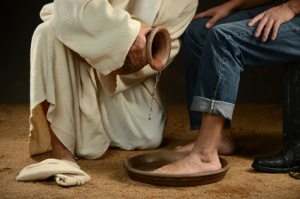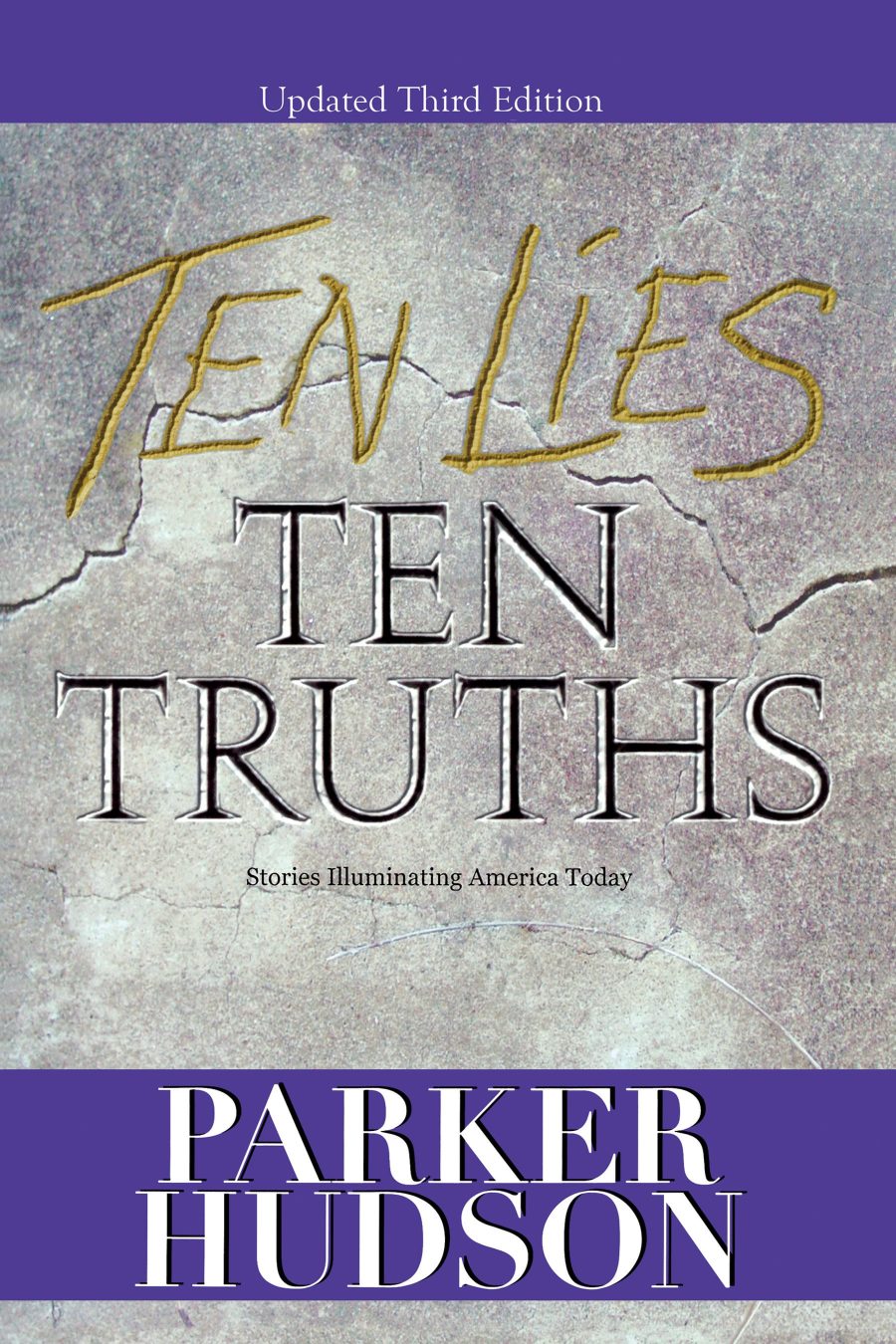Are you and I ready to die? Today? Do we ever even think about it, and about what death will mean?
 Probably not, at least until some condition or event suddenly inserts the reality of possible death into our everyday life.
Probably not, at least until some condition or event suddenly inserts the reality of possible death into our everyday life.
See, I even wrote “possible” death, as if it’s not inevitable. I should have written “possible imminent death.”
Because, unlike in all previous human history, today it’s easy to “set death alongside retirement, pensions, and inheritances as matters that should concern us sometime in the future, but certainly not right now.” (Tim Challies)
We are therefore in completely new human territory, where ANY unpleasant issue must have a nearly instant solution—including, at least usually, premature death.
One unintended consequence of the marvels of the last 150 years is that we expect any and every problem to have its solution, and we certainly put death in that category, at least until we hear about someone who is over, say, eighty.
So that keeps us from confronting death’s reality as coming at any age, as every generation before us had to do. And we are thereby lulled by the easy lie that we can “think about it tomorrow.” But not if there is no tomorrow, as our ancestors grasped every day.
Think about it. People just died all the time, from almost anything. An infected blister (See “Written In Stones”). Smallpox. Childbirth. A small wound. An accident. A kidney stone. An operation. An infected tooth. Childhood diseases.
wound. An accident. A kidney stone. An operation. An infected tooth. Childhood diseases.
In my own father’s family, five children survived past infancy into adulthood, but two did not. I suspect that was the norm, or at least people were always prepared for that outcome.
I’ve watched a few episodes of 1883, and while I’m not advocating the show pro or con, what strikes me about it so far is how normal, family people are just dying all the time. Mothers. Fathers. Young children. Older children. From Bad water. Snakebite. A wagon toppling over. Drowning. A fight. And all that before they even get to hostile territory, where people are actually trying to kill them.
The people in that show are the ages of my great-grandparents—really not very long ago. Death was all around them, every day. They simply could not “not think about it.”
 The result is that today my wife and I know many wonderful, loving, caring, talented people who apparently never think about eternity, and where they might spend it. They just get on with their very busy lives and imagine that eternity can be thought about at some later date.
The result is that today my wife and I know many wonderful, loving, caring, talented people who apparently never think about eternity, and where they might spend it. They just get on with their very busy lives and imagine that eternity can be thought about at some later date.
Instead, ask yourself, “Where will I spend eternity? Any why?”
OK, maybe you don’t even think there is an eternity. I understand the thought, but what if you’re wrong? Are you willing to bet your eternity on your possibly flawed thought?
And don’t you simply sense that there is more to you than your physical body? What is that? And where is it going to spend eternity?
Start with: Who created you, and why? If you think you and the rest of life are just the result of some random chance events with molecules, you haven’t looked into the latest research, which makes it clear that such a process is almost impossible. See “The Origin of Life and Evolution” and “Faith is Reasonable.”
into the latest research, which makes it clear that such a process is almost impossible. See “The Origin of Life and Evolution” and “Faith is Reasonable.”
And, if you really were created by someone, what might He/She/It think is proper behavior for you? Seems like, as the created one, you might want to know what the Creator has in mind for you. How will you do that? And when? Or will you put it off until it’s too late?
One of the worst things that can happen to us is to be successful, healthy, comfortable adults. Because then it’s too easy to think that our successes come only from our own talents, education, contacts, personality, etc., etc. Who needs to think about eternity—or a Creator—when everything is going well, and death is a long way off? I’ll just roll on…
But what if there really is a Creator, and He has expectations for us, and there is eternity? Are you and I ready to die today and to face Him and that reality, with no way for a redo?
Our church’s founding pastor, Michael Youssef, has a son, Jonathon, who is also a gifted preacher. He recently preached on what we may find at the end of our days, and why. Here is the audio of his message. Basically, it’s neither pretty nor popular, a modern version of another Jonathan’s “Sinners in the Hands of an Angry God.”

I, for one, believe it is. And if it is, are you prepared? Really prepared. At age 37, after a couple years of God working on me to get my attention, it became crystal clear that not only was I not prepared to face him at my inevitable death, but also that most of what I was doing was against His will, and therefore disastrous for me and my family.
So I wasn’t prepared to die and to face Him; but now, because of a choice I made by God’s grace alone, I am. Are you?
If you might be interested in how He first got my attention and then turned me to Him, you can read a fictionalized version in my novel, written when I was 45, On The Edge.
And between now and that inevitable, actually great, transition, I’ve found a way to help focus whatever time He gives me while still here to, as my friend Ken Boa says, exchange temporal talents into eternal relationships—by counting my days.
In Psalm 90 Moses writes that most of us may expect to live to 70, and some will make it to 80. And he admonishes us to count our days, to get
So, do some quick math and figure out how many days it is until you will be 80. In my case, a month ago the total dropped below 2,000 days. Of course it may actually be today, or more than 2,000 days, but I focus on that declining figure. Today the number is 1,956. Sounds like a lot, I guess, but then divide by seven: Only 279 weeks, and we all know how quickly weeks fly by.
So what am I working on that needs to be finished for Him? How may I deepen relationships with children, grandchildren and friends? Whom might I touch that I don’t even know today? Only 279 weeks to do all that, and more. 279.
Hopefully He still has a lot to accomplish through whatever gifts and talents He’s given me. But, looking at those very real numbers, I shouldn’t delay. Not focusing on getting ready to die, because I already am. But in telling others about the great peace He’s given me–that on the other side of death will be an incredibly joyous eternity with Him.
And, particularly if you are a believer, please see my companion post, “Pray and Work for Those Whom We Love”.


Just now catching up to your post, Parker, and it brought a smile to my face. I too have been thinking more about death and in particular what is on “the other side of death”. A book by that title written by one of my favorite theologians, J Sidlow Baxter, really puts the expectations into sharp focus. My concern is increasing these days with many I know who have put little or no thought into what is in the “beyond”. Your words resonate well with me as I proceed further into the “4th quarter of life” and I appreciate how you have shared your opinion about how we should occupy until our final day here in this age arrives.
Your posts continue to be stimulating and much appreciated. Keep up the good work.
I think you hit on a key component of how we should respond knowing our days are numbered. Namely, “how may I deepen my relationships with children, grandchildren and friends?” I am pretty sure you also have the thought of “neighbor” in that list too.
In today’s cultural environment, people may be tempted to curse the darkness, somehow thinking they are doing some good by calling out obvious evils and sharing them with other like-minded people. Others may hope to create or participate in some culture transforming movement which has an immediate impact. It is good to be discerning and to try and initiate change. However, even better is grow in character and let who we are influence children, grandchildren, friends and neighbors through a sustained godly influence.
It is my opinion; this has been mostly forgotten in the age where many seek to build large digital platforms to mediate a lifestyle and worldview to the masses rather than live them out before those we interact with through the normal rhythms of daily life. We have lost the understanding of a slow sustained generational influence and are now eating the fruits thereof. It is essential to recapture the power of a life well-lived in the context of our relationships with other people who we actually see face-to-face. People are weary of other’s words devoid of seeing them lived out in real life.
Thank you for your post.